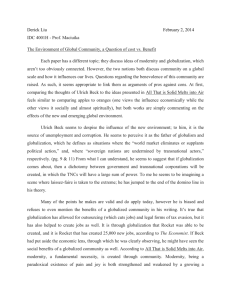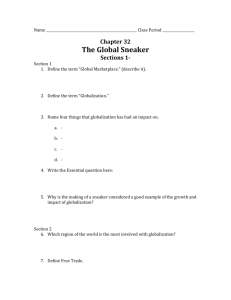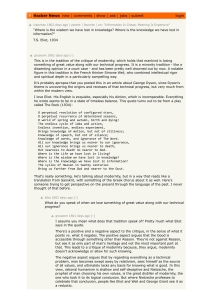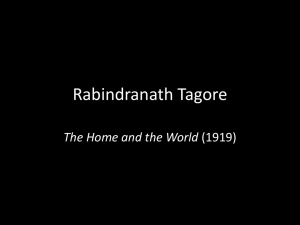Gender and Globalization
advertisement
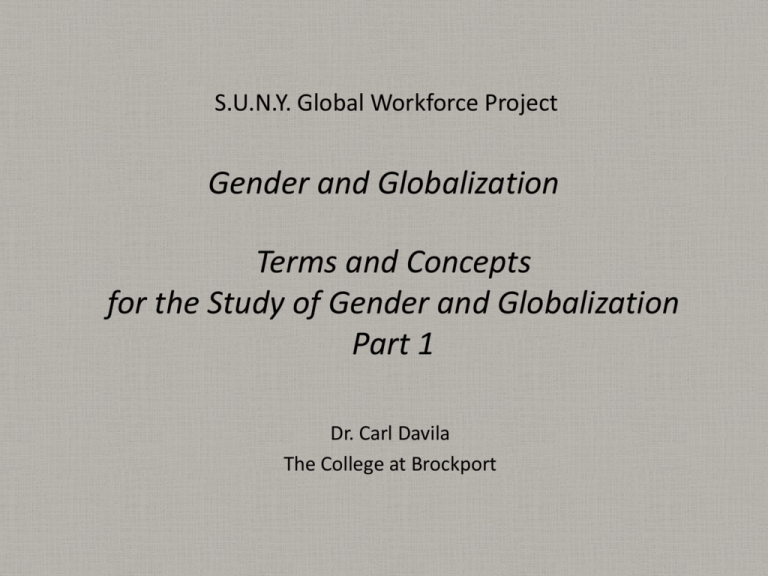
S.U.N.Y. Global Workforce Project Gender and Globalization Terms and Concepts for the Study of Gender and Globalization Part 1 Dr. Carl Davila The College at Brockport 1. Toward a Definition of Globalization One definition of globalization might be: A process of interaction and integration among the people, companies, and governments of different nations … … driven by international trade and investment and aided by information technology … … which has effects on … the environment culture political systems economic development and prosperity human physical well-being economic liberalization a.k.a. “neo-liberalism” The economic policy, implemented by governments largely through international agreements, which attempts to reduce or remove limitations on international trade and flow of capital. These limitations may include … • Tariffs • Trade quotas • Currency exchange and export policies • Restrictions on labor migration Other perceived limitations on economic liberalizaton include … • Laws intended to protect the environment • Laws intended to protect labor rights. The cultural issues that arise with globalization can be summed up in the (perceived) clash between “local” tradition and “global” modernity Modernity Commonly understood as both economic and cultural “progress”, e.g.: Market-driven capitalism and rationalization of economy “Development” and economic “growth” “New” cultural forms: the arts, “civil society”, governmental forms (“democracy”, “human rights”, etc.) and in general, a kind of relentless drive toward “progress”, the future, “development” and so on Tradition Often linked with identity: Tradition helps a community to see itself as distinctive, historically important, etc. Economic modernity always brings changes in society, and challenges tradition … Especially the traditional position of women in society often because their labor is needed outside the home Link to Fiddler on the Roof Clip of “Tradition” http://youtu.be/Zovz8ZV_B6s What is the difference between sex and gender? Consider that there is a difference between the biological fact of being male or female… and the social meaning attaching to being a man or a woman. Gender system vs. gender ideology The distinction between what people do and what they think about it: Gender system : The distinct, culturally-defined roles and statuses of men and women. The different ways that men and women behave, or are expected to behave that marks them as masculine and feminine. The “what” of roles and status. Gender ideology The culturally-based beliefs about the differences between men and women, what it means to be masculine or feminine in a given cultural setting, that are commonly used to explain the gender system. The “why” of roles and status. Patriarchy Two dimensions : The institutionalized subordination of women to men (gender system). And the taken-for-granted belief ☞ that men are “naturally” superior or more valuable, ☞ that society is more stable or prosperous when led by men, etc. (gender ideology). End of Part 1

